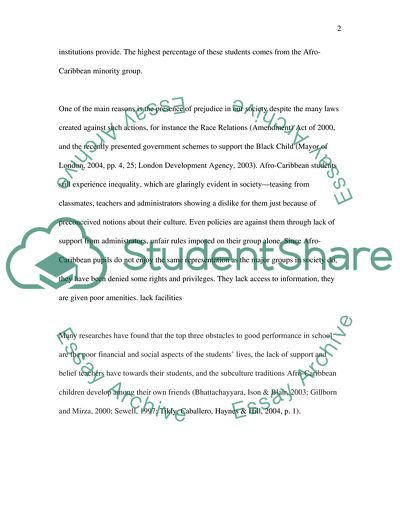Cite this document
(Reasons for the Poor Performance of Afro-Caribbean Students Literature review, n.d.)
Reasons for the Poor Performance of Afro-Caribbean Students Literature review. Retrieved from https://studentshare.org/education/1715063-why-are-afro-caribbean-males-underachieving-in-english-educational-system
Reasons for the Poor Performance of Afro-Caribbean Students Literature review. Retrieved from https://studentshare.org/education/1715063-why-are-afro-caribbean-males-underachieving-in-english-educational-system
(Reasons for the Poor Performance of Afro-Caribbean Students Literature Review)
Reasons for the Poor Performance of Afro-Caribbean Students Literature Review. https://studentshare.org/education/1715063-why-are-afro-caribbean-males-underachieving-in-english-educational-system.
Reasons for the Poor Performance of Afro-Caribbean Students Literature Review. https://studentshare.org/education/1715063-why-are-afro-caribbean-males-underachieving-in-english-educational-system.
“Reasons for the Poor Performance of Afro-Caribbean Students Literature Review”. https://studentshare.org/education/1715063-why-are-afro-caribbean-males-underachieving-in-english-educational-system.


